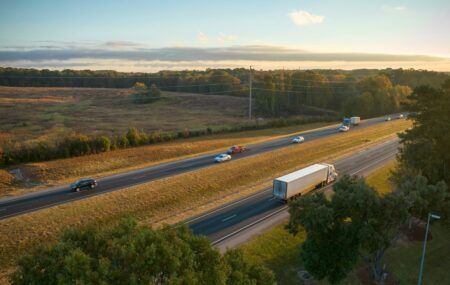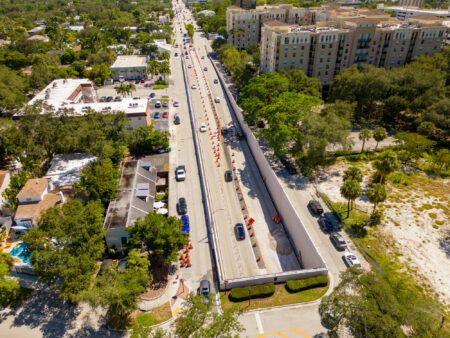The UK’s new Transport Secretary, Chris Grayling, has met with representatives from the Midlands Connect partnership to discuss progress on a long-term transport strategy to help unlock economic growth in the region, which is home to the country’s automotive industry.
Operating as the transport component powering the ‘Midlands Engine’, the Midlands Connect partnership involves 11 local enterprise partnerships (LEPs), Network Rail, Highways England (HE), HS2 (High Speed Rail), 28 local authorities, and the region’s business community, with the Department for Transport (DfT) acting as an associate member. Research from the group of local authorities and business leaders has found that improving transport links to speed up journey times across the Midlands could: significantly boost the economy; create thousands of new jobs; and save businesses millions of pounds.
The government has provided Midlands Connect with £5m (US$6.6m) to develop a new strategy to improve transport in the region. It is now working with the DfT and transport operators on the plan, which aims to set out credible long-term transport investment priorities to support transforming the Midlands into an engine for growth.
The interim report, Picking up the Pace, outlines Midlands Connect’s initial work ahead of the full strategy, which is due to be completed in March 2017. The report was launched at Derby City Council by Sir John Peace, chairman of the Midlands Engine and Midlands Connect. Picking up the Pace has three themes: to get growth planned, started, and delivered.
“Good transport helps people get around and get on, and is crucial to driving economic growth,” said Grayling. “That is why the government is heavily investing in transport across the country, spreading opportunity and growth, and bringing our country closer together. With its position at the heart of the UK, the Midlands is vital to the country’s success and I want the region to speak to government with one voice on its future transport priorities. Midlands Connect is making great progress, building evidence of the region’s transport needs, and bringing real momentum to making the Midlands an engine for growth. I look forward to working closely with Midlands Connect and seeing the proposals in the final strategy.”
The report comes following significant government investment in the region. In the East Midlands, the government has invested £150m (US$196.7m) to widen the A453 and £200m (US$262.3m) to upgrade the M1 motorway. In Nottingham, £370m (US$485m) has been invested extending the tram network, and in Birmingham £75m (US$98m) has been spent on extending the Metro from Snow Hill through the city center. There are now 40,000 more businesses in the Midlands than there were in 2010, and more people in work in the region than at any time since 1992. The final Midlands Connect strategy will develop and examine options for measures that: maximize economic growth from HS2; reduce journey times and improve reliability between centers; improve national, regional and local journeys through the Midlands; and improve connections to international gateways.




